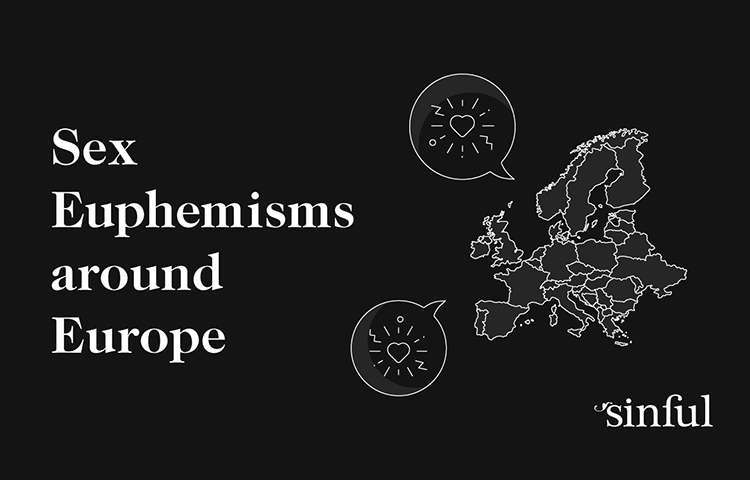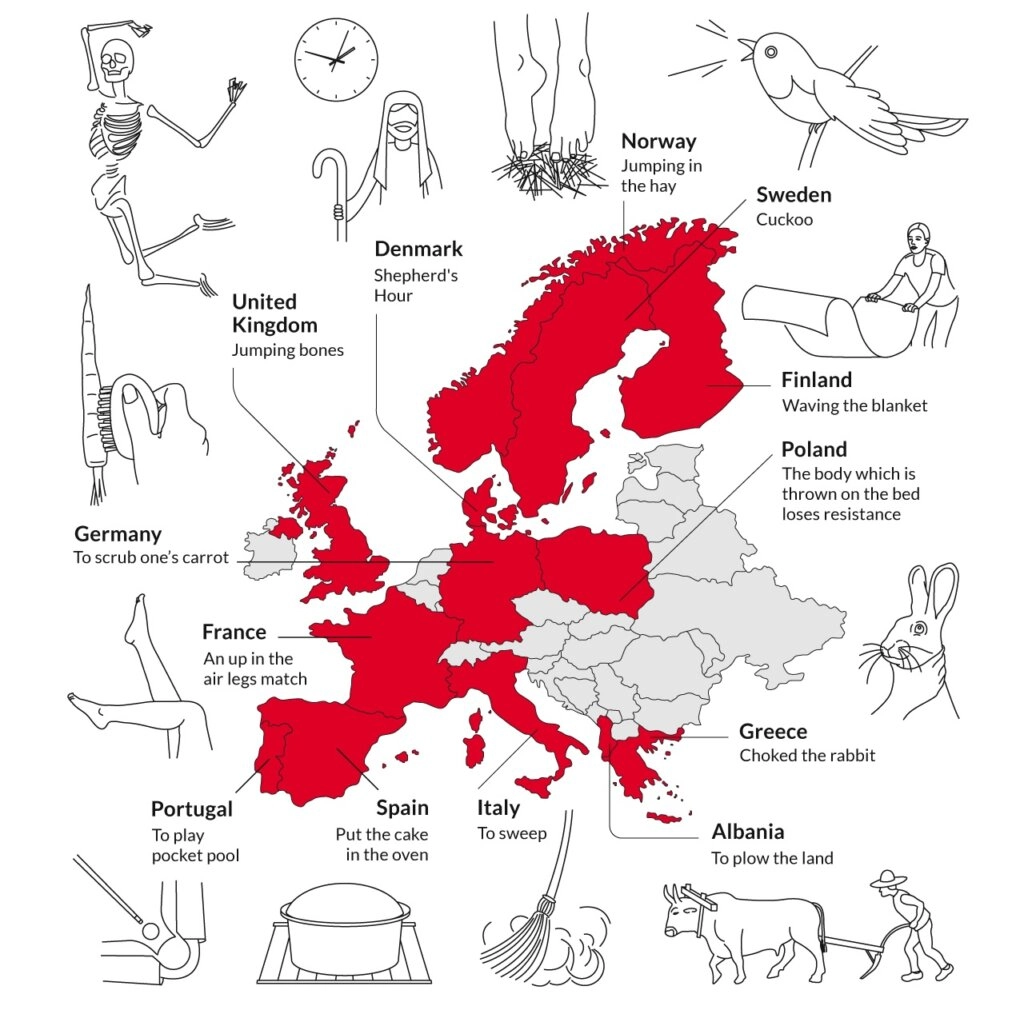It’s no secret that we talk a lot about sex here at Sinful, and we know that sex can often be avoided in conversations, or sometimes hidden by euphemisms.
We wanted to take a look at the way different countries around Europe talk about sex, and how they use nuances to communicate sexual acts or talk about doing the deed.
Looking at recent data, we’ve compiled the most popular sex euphemisms in Europe to uncover how language encapsulates different cultural views on sex.
How do we talk about sex in the UK?
We’ve scoured the English vernacular and vocabulary over the centuries to find some truly unique ways of talking about sex without actually having to mention the word ‘sex’. Some of the most popular and traditional euphemisms include:
- Jumping bones
- Doing the deed
- Bumping uglies
- A bit of ‘how’s your father?’
We’ve also heard some more unusual sex-related phrases in the 21st century, particularly in the internet age, including camel toes, pearl necklaces and laying pipe.
Us Brits are known for being unusually reserved in comparison to our European cousins, so it’s little wonder that we’ve come up with so many different ways to talk about sex without embarrassing ourselves by using the actual words. So how do our friends across the Channel talk about sex?
How do Europeans talk about sex?
Unsurprisingly, the literal translations of some of the most common euphemisms in each country are a lot more expressive than we Brits would be comfortable with being.
Spain
Our Spanish contemporaries use some truly unique phrases like “Mojar El Churro”, which means “To wet the doughnut” and “Poner la tarta en el horno” which translates to “Put the cake in the oven”. Clearly their love for sweet cuisine has influenced their choice of euphemisms – and who’s to blame them when we all know the key to anyone’s heart is through their belly!
France
The French, forever our trendy cousins, are renowned for being very open about sex, and have quite a literal translation for their most common euphemism. “Faire une partie de jambes en l’air” translates to “an up in the air legs match”.
Sweden
The Swedes are a bit more on our wavelength with their vaguer choice of euphemisms: ‘Sätta på’ which translates to ‘turn on’. In fact, even single words can be interpreted as a euphemism in Sweden, such as “Göka” which actually translates as “Cuckoo”. And yes, we do mean the bird.
Albania
In Albania, historically one of the poorest countries in Europe, the most common euphemism harkens back to times of hard labour, with their top choice being “Puno token”, which translates as “To plough the land”. This could be a poetic reference to the beauty of sex and its natural place in the world, but it could also be a comparison to hard work.
Germany
Once more, Germany fits into the category of using food-based innuendos to refer to sex, with the common “Die Möhre schrubben” translating as “To scrub one’s carrot”. Germany is one of the top ten producers of carrots around the world, so maybe the orange appendage-shaped vegetables have made a lasting impact on the German population.
Denmark
Over in Denmark, you’re likely to find yourself referring to agricultural life in place of sex, with phrases such as “En tur i høet” meaning “A trip in the hay” and “Hyrdetime” translating as “Shepherd’s hour”. It isn’t surprising that euphemisms related to this lifestyle have cropped up given the fact that agriculture is one of the country’s largest industries.
Norway
Like Denmark, one popular euphemism in Norway shares an agricultural and cultivation theme, with “Hoppe i høyet” translating as “Jumping in the hay”. Another interesting Norwegian euphemism is “Få seg et nummer”, meaning “Get a number” – so it sounds as though things move pretty quickly in Norway!
Finland
Staying in the Nordic region, Finland has some extremely interesting euphemisms that actually make more sense than some of those we use. For instance, “Heiluttaa peittoa” translates as “Waving the blanket” and “Tanssia vaakamamboa” means “Dance horisontal mambo”. Maybe we should give these a try in England?
Greece
Our research for Greece brought up some really curious euphemisms that would confuse even the most stiff-upper-lipped of the Brits:
- έπνιξες το κουνέλι – “Choked the rabbit”
- έβαλα το κεφάλι μου στο φούρνο – “Put my head in the oven”
- τη φυστίκωσα – “I peanut’ed”
Make of them what you will!

